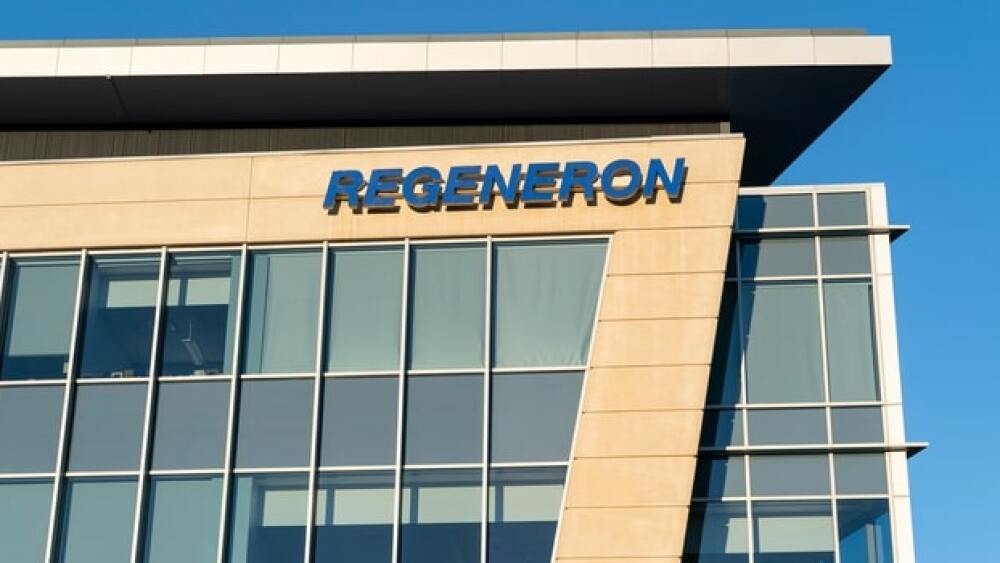Seven out of eight patients met primary endpoints
Overall 77% radiological and 68% clinical improvement demonstrated
Gosselies, Belgium, 17 May 2016 – BONE THERAPEUTICS (Euronext Brussels and Paris: BOTHE), the bone cell therapy company addressing high unmet medical needs in the fields of bone fracture repair, fracture prevention and spinal fusion, today announces positive efficacy results for the second patient cohort in the Phase I/IIA trial of its allogeneic1 bone cell therapy product ALLOB® for the treatment of delayed-union fractures. Eight patients have now been treated and of these, seven patients met the primary endpoints of the trial within the six-month follow-up period2.
The ongoing Phase I/IIA study is a six-month open-label trial to evaluate the safety and efficacy of ALLOB® in the treatment of delayed-union fractures of long bones. Patients receive a single percutaneous administration of ALLOB® directly into the fracture site. The study is targeting the recruitment of 32 patients, but is flexible and could be prematurely stopped on the basis of efficacy after an interim data analysis of the first 16 patients. To date, eight patients with a fracture that had failed to consolidate after a minimum of three and a maximum of seven months, have completed the six-month follow-up without any treatment-related safety concerns.
Fracture healing is assessed using radiological and clinical (e.g., pain, weight bearing) evaluation. In this cohort of eight patients, radiological scores showed a statistically significant improvement of 77% at six months. Overall, pain at the fracture site improved by 68% and health status by 50% at six months (all statistically significant). Additional follow-up of the first four patients confirms the efficacy and patient’s minimal pain and good health status at 12 months.
Enrico Bastianelli, Chief Executive Officer of Bone Therapeutics, commented: “We are pleased to report that these efficacy data for the second cohort are in line with the positive results communicated for the first and come alongside confirmation of safety in the trial. The clinical and radiological improvements demonstrate that a single administration of ALLOB® can offer significant benefits for these patients and strengthen our belief in the value of this allogeneic ‘off the shelf’ product.”
1 Allogeneic", or “off the shelf” therapies are those in which the cells are harvested from a healthy donors, as opposed to “autologous” where the cells come from the patient him/herself.
2 The lack of a response in one patient could be related to an instability of the fixation devices of the fracture.
About ALLOB®
ALLOB® is a first-in-class allogeneic differentiated osteoblastic (bone-forming) cell therapy product developed for the treatment of orthopaedic conditions and bone diseases. Allogeneic cell therapy involves the harvesting of cells from a healthy donor, rather than from the treated patient. ALLOB® is currently being evaluated in three Phase I/IIA clinical trials for delayed-union fractures, spinal fusion and the revision of failed spinal fusions. ALLOB® has been classified as a tissue engineered product under the ATMP regulation 1394/2007EMA and received orphan drug designation from the EMA (Europe) and FDA (US) for two indications, osteonecrosis and osteogenesis imperfecta. About Delayed-Union Fractures A delayed-union fracture is defined as a fracture that has not healed within the expected normal period after the initial injury (i.e. 3 to 4 months) and is at risk of non-healing. Traditional options for the treatment of an impaired fracture (i.e. bone graft) typically involve highly invasive surgery, which can be painful and require months of rehabilitation with the risk of serious complications. Due to the risks of current treatments, orthopaedic surgeons often take a ‘wait-and-see’ approach, sometimes for several months, which delays the patient’s return to a normal life and leads to a significant burden on society. ALLOB® has the potential to become a first-line and early treatment for delayed-union fractures, thanks to its minimally invasive administration that avoids the need for major surgery. Bone Therapeutics has already demonstrated efficacy in the first four-patient cohort of its ALLOB® Phase I/IIA trial for delayed-union fractures and completed treatment without any safety concerns in the second cohort.
About Bone Therapeutics
Bone Therapeutics is a leading biotechnology company specializing in the development of cell therapy products intended for bone fracture repair and fracture prevention. The current standard-of-care in this field involves major surgeries and long recovery periods. To overcome these problems, Bone Therapeutics is developing a range of innovative regenerative products containing osteoblastic/bone-forming cells, administrable via a minimally invasive percutaneous technique; a unique proposition in the market.
PREOB®, Bone Therapeutics’ autologous bone cell product, is currently in pivotal Phase IIB/III clinical studies for two indications: osteonecrosis and non-union fractures, and in Phase II for severe osteoporosis. ALLOB®, its allogeneic “off-the-shelf” bone cell product, is in Phase II for the treatment of delayed-union fractures and lumbar fusion for degenerative disease of the spine, including a minimally invasive therapy for failed spinal fusions. The Company also runs preclinical research programs and develops novel product candidates.
Founded in 2006, Bone Therapeutics is headquartered in Gosselies (South of Brussels, Belgium). Bone Therapeutics’ regenerative products are manufactured to the highest GMP standards and are protected by a rich IP estate covering 11 patent families. Further information is available at: www.bonetherapeutics.com.
Overall 77% radiological and 68% clinical improvement demonstrated
Gosselies, Belgium, 17 May 2016 – BONE THERAPEUTICS (Euronext Brussels and Paris: BOTHE), the bone cell therapy company addressing high unmet medical needs in the fields of bone fracture repair, fracture prevention and spinal fusion, today announces positive efficacy results for the second patient cohort in the Phase I/IIA trial of its allogeneic1 bone cell therapy product ALLOB® for the treatment of delayed-union fractures. Eight patients have now been treated and of these, seven patients met the primary endpoints of the trial within the six-month follow-up period2.
The ongoing Phase I/IIA study is a six-month open-label trial to evaluate the safety and efficacy of ALLOB® in the treatment of delayed-union fractures of long bones. Patients receive a single percutaneous administration of ALLOB® directly into the fracture site. The study is targeting the recruitment of 32 patients, but is flexible and could be prematurely stopped on the basis of efficacy after an interim data analysis of the first 16 patients. To date, eight patients with a fracture that had failed to consolidate after a minimum of three and a maximum of seven months, have completed the six-month follow-up without any treatment-related safety concerns.
Fracture healing is assessed using radiological and clinical (e.g., pain, weight bearing) evaluation. In this cohort of eight patients, radiological scores showed a statistically significant improvement of 77% at six months. Overall, pain at the fracture site improved by 68% and health status by 50% at six months (all statistically significant). Additional follow-up of the first four patients confirms the efficacy and patient’s minimal pain and good health status at 12 months.
Enrico Bastianelli, Chief Executive Officer of Bone Therapeutics, commented: “We are pleased to report that these efficacy data for the second cohort are in line with the positive results communicated for the first and come alongside confirmation of safety in the trial. The clinical and radiological improvements demonstrate that a single administration of ALLOB® can offer significant benefits for these patients and strengthen our belief in the value of this allogeneic ‘off the shelf’ product.”
1 Allogeneic", or “off the shelf” therapies are those in which the cells are harvested from a healthy donors, as opposed to “autologous” where the cells come from the patient him/herself.
2 The lack of a response in one patient could be related to an instability of the fixation devices of the fracture.
About ALLOB®
ALLOB® is a first-in-class allogeneic differentiated osteoblastic (bone-forming) cell therapy product developed for the treatment of orthopaedic conditions and bone diseases. Allogeneic cell therapy involves the harvesting of cells from a healthy donor, rather than from the treated patient. ALLOB® is currently being evaluated in three Phase I/IIA clinical trials for delayed-union fractures, spinal fusion and the revision of failed spinal fusions. ALLOB® has been classified as a tissue engineered product under the ATMP regulation 1394/2007EMA and received orphan drug designation from the EMA (Europe) and FDA (US) for two indications, osteonecrosis and osteogenesis imperfecta. About Delayed-Union Fractures A delayed-union fracture is defined as a fracture that has not healed within the expected normal period after the initial injury (i.e. 3 to 4 months) and is at risk of non-healing. Traditional options for the treatment of an impaired fracture (i.e. bone graft) typically involve highly invasive surgery, which can be painful and require months of rehabilitation with the risk of serious complications. Due to the risks of current treatments, orthopaedic surgeons often take a ‘wait-and-see’ approach, sometimes for several months, which delays the patient’s return to a normal life and leads to a significant burden on society. ALLOB® has the potential to become a first-line and early treatment for delayed-union fractures, thanks to its minimally invasive administration that avoids the need for major surgery. Bone Therapeutics has already demonstrated efficacy in the first four-patient cohort of its ALLOB® Phase I/IIA trial for delayed-union fractures and completed treatment without any safety concerns in the second cohort.
About Bone Therapeutics
Bone Therapeutics is a leading biotechnology company specializing in the development of cell therapy products intended for bone fracture repair and fracture prevention. The current standard-of-care in this field involves major surgeries and long recovery periods. To overcome these problems, Bone Therapeutics is developing a range of innovative regenerative products containing osteoblastic/bone-forming cells, administrable via a minimally invasive percutaneous technique; a unique proposition in the market.
PREOB®, Bone Therapeutics’ autologous bone cell product, is currently in pivotal Phase IIB/III clinical studies for two indications: osteonecrosis and non-union fractures, and in Phase II for severe osteoporosis. ALLOB®, its allogeneic “off-the-shelf” bone cell product, is in Phase II for the treatment of delayed-union fractures and lumbar fusion for degenerative disease of the spine, including a minimally invasive therapy for failed spinal fusions. The Company also runs preclinical research programs and develops novel product candidates.
Founded in 2006, Bone Therapeutics is headquartered in Gosselies (South of Brussels, Belgium). Bone Therapeutics’ regenerative products are manufactured to the highest GMP standards and are protected by a rich IP estate covering 11 patent families. Further information is available at: www.bonetherapeutics.com.




